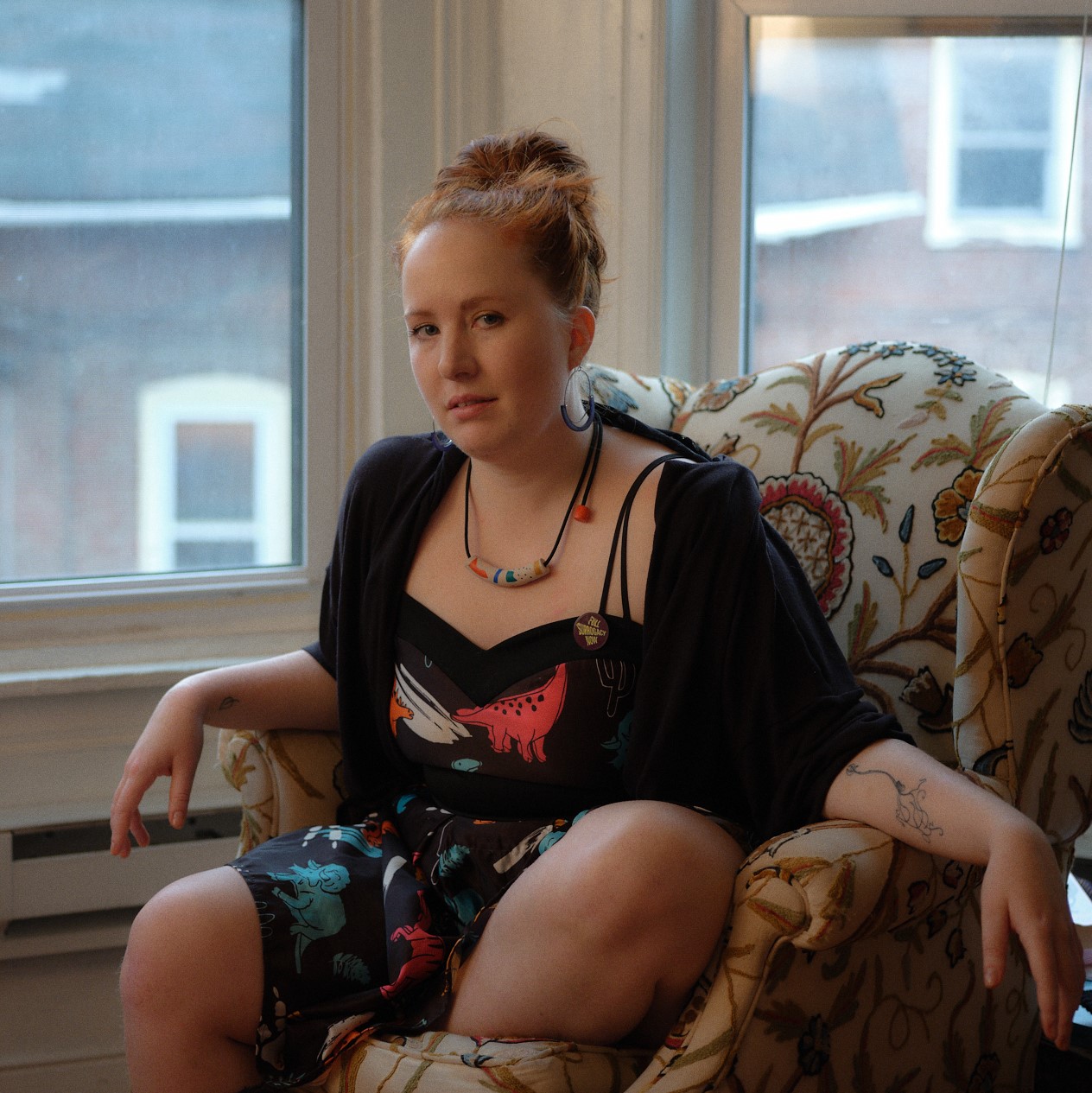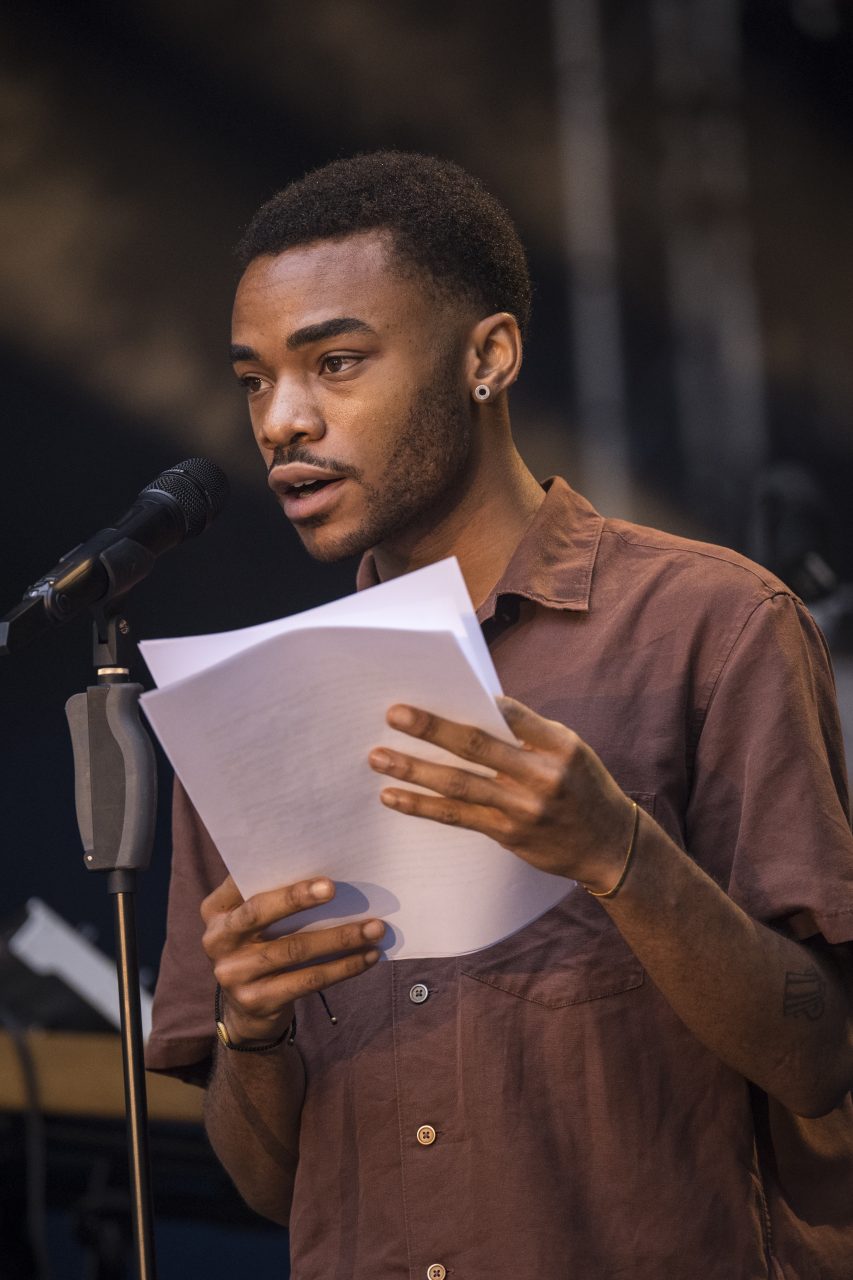Sophie Lewis: Abolish the Family to realize its promise?
{{ time.start_TS | TS2dateFormat('MMM') }}
{{ time.start_TS | TS2dateFormat('YYYY') }}
| English |
| Mechanical Arena in the Foyer |
| Belongs to: Care or Chaos? |
This public lecture offers an honest confrontation with a topic that affects us all: the family. Author Sophie Lewis shows that while the family can be a place of love and care, it is also often shaped by overwhelm, inequality, and pain. That’s why, throughout history, many different models of living and reproducing together have emerged.
Lewis asks – particularly in the context of care work: why do we assume that only the family should be responsible for caregiving? And what if we imagined other ways of living together – more just, more solidaristic, more open to all?
“The family is a limited and limiting technology,” says Lewis. With examples from history, philosophy, and queer and feminist movements, the lecture explores how people have long sought alternatives to the traditional family. The aim is not so much to “abolish” the family, but to rethink how we live together. To do so, Lewis introduces the concept of “familying” – beyond fixed roles and constraints.
In her essay Doing, not Being, Family, published in the exhibition catalogue Beziehungsweise Familie (Family Relations), she advocates for an active understanding of kinship.
A lecture for anyone interested in social issues, justice, and new ideas for how we live together. Open to all – no prior knowledge required.
Schedule
Introduction and moderation: Solvej Ovesen, programme curator
Keynote by Sophie Lewis
brief talk between Sophie Lewis, Anguezomo Nzé Mba Bikoro – performance In the Dream House – and Logan February
“Black Rainbow” – poem by Logan February
Participants
Sophie Lewis is an independent scholar and writer based in Philadelphia. For the last five years, she has held a visiting affiliation at the University of Pennsylvania; before that, she studied English Literature, followed by a Masters in Environmental Policy, at Oxford University, and she received her PhD from the the University of Manchester following a Fulbright scholarship at the New School. Lewis is currently working on a book for Penguin: The Liberation of Children (forthcoming 2027) as well as an essay collection for Haymarket: Femmephilia (forthcoming 2026). She is the author of Full Surrogacy Now (Verso, 2019), Abolish the Family (Verso, 2022), and Enemy Feminisms: TERFs, Policewomen, and Girlbosses Against Liberation (Haymarket, 2025). Lewis teaches short courses online for the Brooklyn Institute for Social Research, and publishes essays everywhere from the London Review of Books to Hanser Verlag’s “Selber Schuld” anthology.
Anguezomo Nzé Mba Bikoro is an interdisciplinary visual artist, writer, somatic body therapist, human rights community worker and curator supporting BiPOC and queer groups using integrative approaches that combines humanistic and abolitionist-inspired methods, de-traumatisation tools alongside cognitive behavioural therapy (notably for C-PTSD) and ancestral healing work. Their abolitionist approach is shaped through decolonial embodied practices and awareness of racism, discrimination and gender identity. Their practice honours queer histories and indigenous struggles centering Bakongo Cosmology, Obeah and Orixa practices that empowers communities and shares resources to create tools of safety towards self-awareness & transformation in mental health. Their works on herbalism and ancestral healing often exposes the interwoven colonial histories of migration and ecologies in site-specific spaces to dismantle prejudices and create independent emancipatory tools for liberation, education, and reparation. They spent the last years in support with human rights organisations using paraecologies as forensic tools for court cases in advocating for human justice of murdered Black women in German refugee camps through plant echo-logies and sonic vibration, mineral herz of oceans, geological soils and rock formations to trace colonial human land displacement, agricultural warfare and genocide in Namibia, Gabon, Kenya and Morocco to create anti-colonial meditations and archive colonial crimes inside German history.
Logan February, born in 1999 in Anambra, Nigeria, is a non-binary poet, essayist, singer, songwriter, and LGBTQ activist. In addition to publications in literary journals, Logan has released three poetry collections—How to Cook a Ghost (2017), Painted Blue with Saltwater (2018), Garlands (2019)—and the poetry book In the Nude (2019), which have been partially translated into Spanish, Italian, and Dutch. In 2020, Logan February was awarded the Future Awards Africa Prize for Literature. In the spring of 2024, the anthology Mental Voodo was published in German, English, and Yoruba by Engler Verlag. In 2024, Logan February has been a fellow in the DAAD Berlin Artists Program and has performed in Berlin at the Afrolution Festival, the African Book Festival, the ILB, the Poetry Festival, and at the Literarisches Colloquium. 2025 he is poet in residence in the Humboldt Forum, funded by the Programm “Weltoffenes Berlin”.
Logan February is funded by the programme “Weltoffenes Berlin”.


